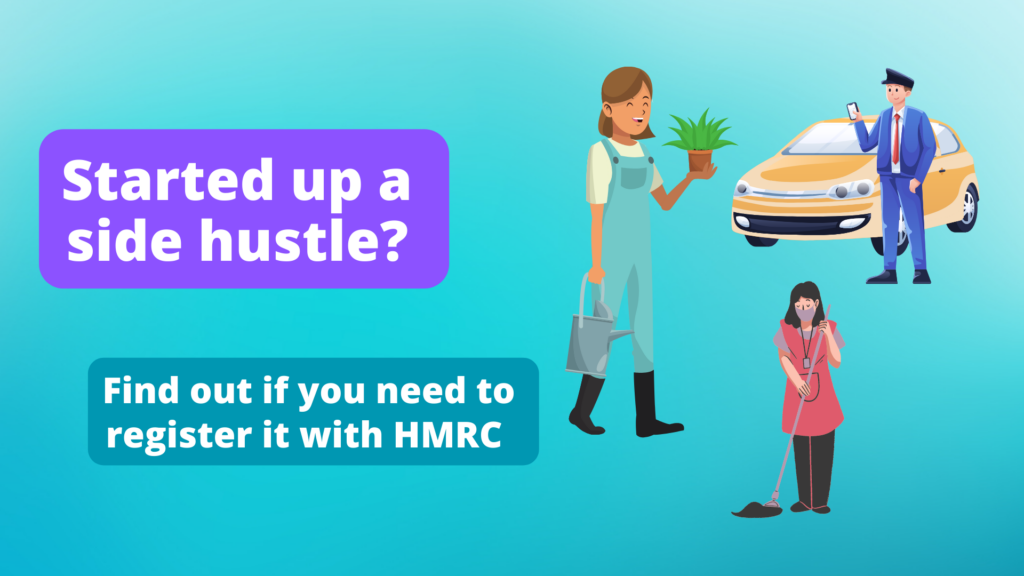To help address the rising cost of living, many people are finding ways to increase their income with what’s known as a ‘side hustle.’ It can be a good money booster, but what are the tax rules?

Perhaps you’re taking in ironing for your neighbours, or delivering food for a local takeaway. You might be employed by a business already and are doing this additional work on the side. Or perhaps you’re self-employed and taking on new jobs to boost your bank balance.
But when you’re earning additional money, you might need to pay tax on it – and none of us want to be caught out by the taxman. In this quick guide, we’ll make sure you understand what your responsibilities are.
Business registration – yes or no?
You only need to register your side hustle if it generates an income of more than £1,000 per year. Below that, you can take advantage of the ‘trading income allowance’. Note that the £1,000 refers to income, not profit. But using this allowance may not always be the most tax-efficient choice.
How do I register a business?
Essentially, you will need to register as self-employed. It’s an easy process online, just go to the Government website.
Once you’re registered as self-employed, you will need to inform HMRC about the income and expenses for your side hustle. You do this annually by filling out a self-assessment tax return. The deadline for submitting tax returns is January 31 each year.
How much tax will I pay?
Once you’ve registered your additional business with HMRC, you’ll be responsible for paying tax on your business profits. You’ll pay income tax and Class 2 and Class 4 national insurance.
How much you pay depends on your business profit and the income tax allowances you’re entitled to. Remember that the income tax you pay will be based on the combined income from your side hustle plus your main job.
What are the tax thresholds?
If your side hustle income takes you over the income tax threshold, you may end up paying a higher rate of tax.
Current tax thresholds are as follows:
| Band | Taxable income | Tax rate |
| Personal Allowance | Up to £12,570 | 0% |
| Basic rate | £12,571 to £50,270 | 20% |
| Higher rate | £50,271 to £125,140 | 40% |
| Additional rate | over £125,140 | 45% |
Are there other things I should consider when registering my side hustle?
If you’re concerned about the level of tax you will pay once you have registered your side hustle, get some advice from an accountant.
There are other business structures you could consider, such as a Limited Company. That could be a good option if you plan to expand your side hustle in future, or if you have business partners.
It’s much better and simpler to start out with the right structure than to try and change it later.
What happens if I don’t register?
If HMRC finds out you have not declared a source of taxable income, you may face interest and penalties on top of the tax owed. If it’s a serious case, you could end up in court.
If you’ve made a genuine mistake, the earlier you contact HMRC to tell them about the income, the more lenient they’re likely to be.
How can I get more information?
We’re here to help – if you’re not sure whether you need to register the business or not, or whether you should set it up as a limited company, just give us a call. We’ll help you decide on the right approach to match your situation and future goals.
As accountants we’re here for individuals and small businesses to help with tax management in the Lune Valley area. Contact us today.

